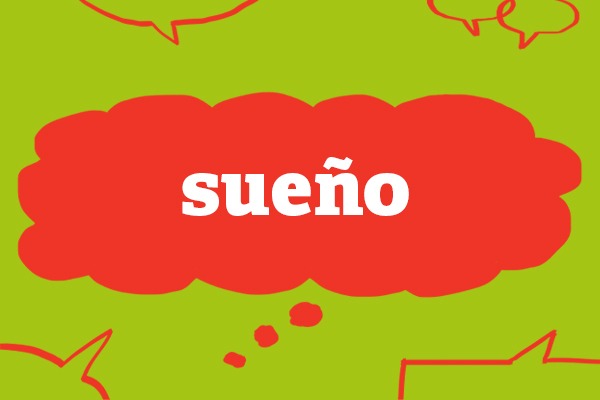This week’s Spanish word of the week is sueño.
Sueño is a noun that means sleep or dream and you can find out how to pronounce it here:
function playAudio(url) { new Audio(url).play(); }Hamlet said, ‘To sleep: perchance to dream…’. In Spanish the connection between the two is so intimate that the same word – sueño – covers both:
despertarse de un sueño profundo to wake from a deep sleep
En mi sueño parecía que estaba volando. In my dream it was as if I was flying.
You need to be a bit careful when using this word with the verb tener. The meaning changes according to whether you use the article or not:
Tenía mucho sueño. I was very sleepy.
Anoche tuve un mal sueño Last night I had a bad dream.
When used with conciliar it means to get to sleep:
No podía conciliar el sueño. I couldn’t get to sleep.
It’s also used in the same way as English, to talk about your ambitions and wishes:
el sueño americano the American dream
Su sueño era llegar a ser científica. Her dream was to become a scientist.
Come back next week for a new word, and expand your Spanish vocabulary!



